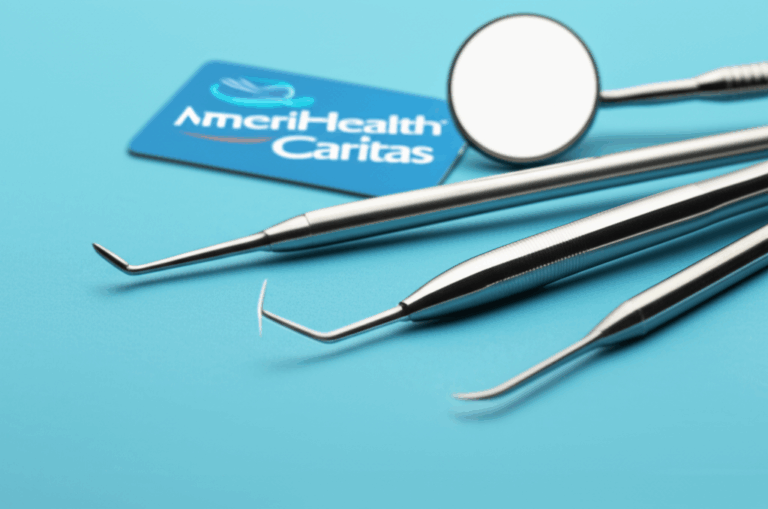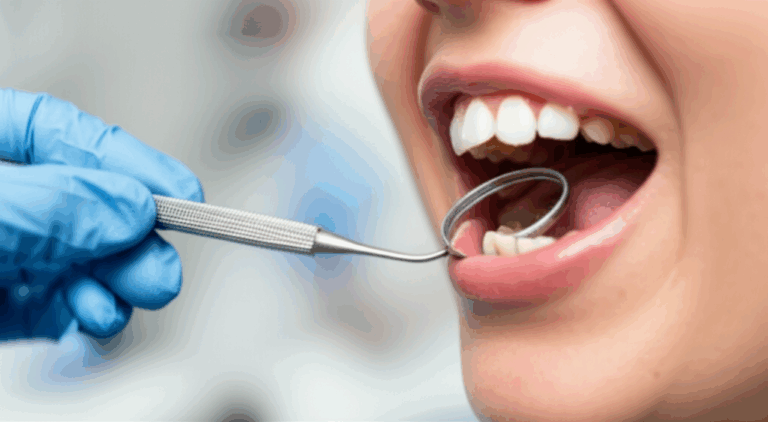
Who Removes Wisdom Teeth? Understanding Your Dental Options
That moment you first hear “You need your wisdom teeth out” can trigger a mix of questions, maybe even a little worry. If you’ve found yourself wondering, “Does my regular dentist take out wisdom teeth, or do I need a special doctor? What’s the difference, and will it hurt?” — you’re definitely not the only one.
Don’t worry—this is a really common thing, and knowing what comes next can help you feel much less scared. Let’s break down your choices, explain things simply, and help you get ready to make the best decision for your mouth.
In This Article
- The Main Specialists: Oral and Maxillofacial Surgeons
- Can a Regular Dentist Remove Wisdom Teeth?
- Reasons Your Dentist Might Send You to a Specialist
- The Referral Process: What Happens
- Getting Ready for Wisdom Tooth Removal
- What to Do After Your Extraction
- FAQs About Wisdom Teeth Removal
- Conclusion: Make a Smart Choice for Your Mouth
The Question: Who Takes Out Wisdom Teeth—My Dentist or Someone Else?
Let’s get right to your question—”Who removes wisdom teeth, and how do I know who should do it?”
Most people start by going to their normal dentist, and it might be there that you first hear: “You need your wisdom teeth out.” But does that mean your usual dentist will take them out, or are you supposed to see a special doctor called an oral surgeon? What is an oral surgeon anyway?
Great question! Knowing the difference between these can help you feel more sure about what comes next.
What’s Really Happening? (Simple Wisdom Teeth Science)
Wisdom teeth, or “third molars,” are your last adult teeth to come in. Most of the time, they start showing up between ages 16 and 25. Sometimes, they come in just fine. But a lot of the time, there’s not enough space in your mouth. Then your wisdom teeth might get stuck under the gum or bone, come in sideways, cause pain, swelling, or push on other teeth.
Imagine your mouth like a crowded bus at rush hour. There may not be any room for more people—so when your wisdom teeth show up, things can get cramped fast.
Sometimes, taking them out is quick and simple. But other times, it’s a lot harder—maybe the tooth is still under the gum, or really close to a nerve. The right person to do the job depends on your situation.
The Main Specialists: Oral and Maxillofacial Surgeons
What is an Oral and Maxillofacial Surgeon (OMFS)?
Think of oral and maxillofacial surgeons as the “Navy SEALs” of teeth. These are dentists who go through an extra 4–6 years of training in hospitals, learning all about mouth, jaw, face, and neck surgery.
What to know about oral surgeons:
- Specialty: Surgery for teeth, jaw, and face bones.
- Training: Four to six more years after regular dental school.
- Tricky cases: Take out tough wisdom teeth, especially the ones stuck in your jaw.
- Sedation experts: Can use strong sleep medicines like IV sedation or full anesthesia, which is great for anxious patients or harder cases.
- Surgical skills: Remove teeth that are close to nerves or sinuses, have weird roots, or are part of cysts or tumors.
When do you need an oral surgeon for wisdom teeth?
- When teeth are stuck (impacted) under gums or bone.
- When a tooth is near a nerve or sinus.
- Roots go in odd directions.
- If you have health problems or need stronger medicine to relax you.
- Wisdom teeth with cysts, tumors, or special jaw issues.
Oral surgeons are your best pick if your case is harder, just like you’d rather have a pro remove a tree with roots twisted around pipes.
Can a Regular Dentist Remove Wisdom Teeth?
What Does Your Regular Dentist Do?
You usually see your dentist for cleanings, x-rays, and regular tooth care. Regular dentists are great for checkups, cleaning, and they can handle most simple tooth removals—including easy, already-in-place wisdom teeth.
Here’s what your regular dentist usually does:
- Takes x-rays and checks your mouth if you have pain, swelling, or other wisdom tooth problems.
- Looks at where and how the tooth is growing.
- Removes easy wisdom teeth—the kind that are out in your mouth and looking straight (not stuck).
- Explains your choices and sends you to a specialist if needed.
When a Regular Dentist Might Take Out a Wisdom Tooth
Your dentist may be able to take out your tooth if:
- The tooth is fully out (not under the gum or jaw).
- The tooth isn’t too close to a nerve or anything tricky.
- You don’t have any big health problems and only need simple numbing.
- There’s low risk of things going wrong.
It’s kind of like pulling out a loose carrot from dirt—easy for most dentists.
When Your Dentist Sends You to a Specialist
Your dentist might send you to an oral surgeon if:
- The tooth is impacted (trapped under gum or bone).
- It’s near a nerve or sinus where things could go wrong.
- Roots are twisty or weird-shaped.
- You have health issues or get really scared at the dentist and need more sedation.
- There’s a higher chance of infection, nerve injury, or heavy bleeding.
Getting sent to a specialist isn’t bad! It means your dentist wants you to have the safest and best care.
Reasons Your Dentist Might Send You to a Specialist
You may be thinking, “Why can’t my regular dentist just do all of these removals?” Here are some things that help choose the right person:
Where the Tooth Is and If It’s Stuck
- All the way out: Easy for the dentist.
- Still under gum or bone: Needs surgery—usually the oral surgeon.
- Halfway out: Could be either, depending on roots and nerves.
How Hard the Procedure Is
- Simple pull: Usually your regular dentist.
- Surgical pull (needs cutting gum or bone): Oral surgeon’s job.
Numbing and Sedation
- Local numbing: Most dental offices do this.
- IV sedation or general anesthesia: Usually at a surgeon’s clinic. Good for nervous people, hard cases, or health conditions.
If You Have Health or Worry Issues
If you have health problems (like bleeding issues, heart problems, or diabetes), or get really scared of the dentist, you may do better with someone trained for those cases.
Risk of Things Going Wrong
Risks include:
- Dry socket: Pain where blood clot falls out.
- Infection: Not common, but can happen.
- Nerve injury: Not common but possible.
A surgeon is ready for these things and knows what to do if they happen.
The Referral Process: What Happens
Getting a referral can sound scary, but it just means your dentist wants what’s best for you. Here’s what usually happens:
First Check and X-rays by Your Dentist
They will:
- Talk about your tooth pain or troubles.
- Take big x-rays to see where the teeth and nerves are.
Talking About Options
Your dentist will tell you:
- What they see in the x-rays.
- What could go wrong if you leave the tooth.
- If you need a specialist or not.
Going to an Oral Surgeon (if needed)
Your dentist sends a letter and your info to a trusted oral surgeon.
Your Visit to the Oral Surgeon
Here you might:
- Get more detailed pictures, like a CT scan, if needed.
- Talk about your health and medications.
- Learn about the procedure, risks, numbness options, prices, and recovery.
Getting Ready for Your Wisdom Tooth Removal
If you’re going to your dentist or a surgeon, getting ready helps a bunch:
Before Surgery
- Don’t eat or drink: If you’re getting sleepy medicine, no food or drink for 6–8 hours before.
- Tell about meds: Tell your doctor all the pills and vitamins you take; you might have to pause some.
Set Up for After Surgery
- Get a ride: If you get sedation, someone needs to drive you home.
- Buy soft foods: Like yogurt, mashed potatoes, and smoothies.
- Plan to rest: Take a day or two off, maybe more for tough teeth.
How Healing Works
- Most swelling and pain gets better in 2–3 days.
- First week is biggest for healing.
- Bones can keep healing for months, but you’ll feel better much sooner.
What to Do After Your Extraction
Healing is best if you follow directions. Here’s how to heal fast:
Dealing With Pain, Swelling, and Bleeding
- Pain: Take the medication they give you.
- Swelling: Use ice packs on your jaw up to 2 days.
- Bleeding: Some blood is normal—bite gently on gauze until it slows.
What to Eat
- First day: Eat cool drinks and soft stuff: pudding, applesauce, broth.
- After a few days: Slowly add foods you don’t need to chew much.
- Don’t eat: Hard, crunchy or spicy foods for a while.
Stopping Problems
- Dry socket: Don’t use a straw, smoke, or spit hard—this can make the blood clot fall out.
- Infection: Keep it clean, rinse gently, finish antibiotics if given.
Cleaning Your Mouth After Surgery
- First day: Don’t brush around the hole. Maybe rinse, gently, if they say it’s ok.
- After day one: Start gentle brushing, avoid the surgery area. Salt water is good.
- Stitches: If they dissolve, they go away in days. Others may be taken out at a follow-up visit.
For even more aftercare tips, read this practical guide to recovery after dental surgery.
Your Options Explained: Comparing Dentists and Oral Surgeons
Here’s an easy breakdown:
| Regular Dentist | Oral Surgeon (OMFS) | |
|---|---|---|
| Training | Dental school, normal extractions | + 4–6 yrs surgery training |
| Wisdom teeth removal? | Yes—simple cases | Yes—all, even tough cases |
| Takes out stuck teeth | Not often | Yes, a lot |
| Sedation/anesthesia | Local numbing | IV, general, stronger sedation |
| Handles problems/complications | A little | Yes, trained for emergencies |
| Cost | Often less | Usually more, especially with sedation |
| Need referral? | No (if easy) | Yes (from dentist or self) |
Most people need an oral surgeon for at least one wisdom tooth removal, especially if the tooth is stuck or tough. A referral just means your dentist wants you to be safe.
Who Should Take Out Your Tooth? (How to Know What You Need)
A regular dentist might be fine if:
- Your wisdom tooth is fully in, not near nerves, and you’re healthy.
- You only need numbing (not sedation) and have no health worries.
But you’ll probably need an oral surgeon if:
- Your tooth is stuck under the gum or bone.
- You have had hard tooth pulls before, teeth near nerves or sinuses, or special health needs.
- You want or need more sedation than just numbing.
- You already have swelling, pus, or special gum or jaw problems.
Your health, the way your teeth sit, and how nervous you are—these all matter. That’s why the dentist gives advice about whether to do it themselves or send you to a surgeon.
The Big Picture: Risks, Recovery, and Numbers
Let’s look at some facts:
- About 80% of people have at least one impacted (stuck) wisdom tooth.
- Around 85% of stuck teeth don’t hurt right away, but they might cause trouble later (like infection or damage to other teeth).
- Dry socket happens in up to 30% of lower wisdom tooth pulls, but you can lower that risk by following directions.
- Nerve issues are not common (0.5–5%), and permanent nerve damage is very rare (less than 0.1%).
- Most folks do just fine—over 90% feel happy after getting their wisdom tooth out if the right person did the job.
Money:
- Simple pulls in dental office: $75–$200 per tooth.
- Hard, surgical pulls by oral surgeon: $225–$800+ per tooth, plus extra for strong sedation.
- Insurance might help pay; always check your plan.
Learn more about dental technology and how labs help with modern surgeries by checking out this digital dental lab.
FAQs About Wisdom Teeth Removal
Q: Is wisdom tooth removal always needed?
A: No. Some people’s wisdom teeth grow in fine and don’t cause problems. A lot of them are stuck or hard to clean and cause trouble later. Your dentist uses x-rays and how you feel to decide.
Q: How much does it cost?
A: It depends—a simple pull might cost $75–$200, but hard or stuck wisdom teeth with surgery and sedation can be $350–$800+ per tooth. Insurance sometimes helps.
Q: What are the usual risks?
A: Usual risks are pain, swelling, infection (2–5%), and dry socket (up to 30% for lower teeth). Nerve injury is rare but can happen.
Q: How long does it take to heal?
A: Most swelling and pain gets better in 3–7 days. The gum heals over 2–4 weeks, but the bone keeps healing for months.
Q: Can I get all four out at once?
A: Yes, and most people do, especially if they’re asleep. It’s easier to take care of it all at once.
Want to see more from another dentist’s view? Check out this dentist’s take about hard extractions.
Your Healthy Takeaway (The Simple Ending)
Let’s sum it up:
Key Points:
- Wisdom tooth removal is very common—most teens and young adults get it done.
- Both regular dentists and oral surgeons can take out wisdom teeth—but oral surgeons do the really tough ones.
- If it’s easy, your dentist does it; if it’s tough, you go to a surgeon.
- The right person makes things safer and less stressful.
- Getting ready and following instructions helps you heal better.
- Ask your doctor questions! You deserve to know what’s going on and what it costs.
What to Do Next:
Taking charge of your wisdom teeth—knowing who should take them out, how it’s done, and how to care for yourself after—is an important step for your healthy mouth.
Curious about how crowns, bridges, and dental surgery stuff are made? See this crown and bridge lab for a peek behind the scenes.
Feeling worried, not sure what’s next, or haven’t been to the dentist in a while? Call your dental office and talk! You’re in charge—and you’ve got this!
Additional Resources
- American Dental Association (ADA): Wisdom Teeth FAQ
- American Association of Oral and Maxillofacial Surgeons (AAOMS)
- Local dentists and surgery centers for in-person help
No matter what, knowing your choices means a better, healthier smile for years to come.








